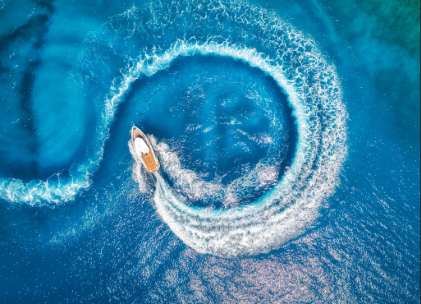INDEPENDENT NATIONAL DEALER
Nationwide-USA
San Diego, CA
(800) 653-0323
OUR BLOG
Boating problems are part of the game, but most are preventable with good maintenance and a basic understanding of your engine. Learn about the common boat issues you may encounter with this post that Synthetic Oil Inc. in San Diego, CA has prepared for you.

Boating is a beautiful way to escape, relax, and enjoy the water. But nothing ruins a day on the lake or ocean faster than an unexpected boat issue, especially when it's your engine that decides to call it quits. Needless to say, this is not only annoying, but it can be dangerous (you’re on a body of water, after all).
Whether you’re a seasoned captain or a weekend cruiser, understanding the most common boat issues, particularly with marine engines, can save you time, money, and even keep you safe. Here’s a breakdown of the most frequent issues boaters face, and what you can do about them.
Make sure your marine engine won’t get in the way of you having an awesome time! Call Synthetic Oil Inc. in San Diego, CA, at (800) 653-0323 or visit AMSOIL's online shop to maintain it perfectly.
Common Boat Issues
1. Battery and Electrical Failures
Marine batteries are one of the most overlooked components until something goes wrong. Dead or weak batteries are the number one reason boaters get stranded. Corroded terminals, loose connections, or leaving electronics running while anchored can drain your battery fast.
Signs of This Common Boat Issue:
- Engine won’t crank or start
- Electronics flicker or power down unexpectedly
- Clicking sound when turning the ignition
Tip: Regularly check battery voltage, clean the terminals, and carry a portable jump pack or spare battery, just in case.
2. Overheating Engines
Marine engines, especially inboard and sterndrive models, rely heavily on water to cool them. If your impeller fails, a hose clogs, or water intakes get blocked (often by debris, seaweed, or mud), your engine can overheat fast.
Signs of This Common Boat Issue:
- Rising temperature gauge
- Steam or burning smell from the engine
- Loss of power or engine warning alarms
Tip: Flush the engine after use, especially in saltwater. Inspect and replace impellers yearly, and ensure water flow is unobstructed before starting the engine.
3. Fuel System Issues
Water-contaminated fuel, degraded fuel lines, or dirty filters can cause engine performance issues or full shutdowns. Ethanol-blended gasoline (E10 or E15) is especially problematic for boats, as it absorbs moisture and separates (phase separation), damaging older engines or carburetors.
Signs of This Common Boat Issue:
- Engine sputters or stalls
- Difficulty starting
- Poor fuel economy or strong fuel smell
Tip: Use marine-grade fuel stabilizers, regularly replace fuel filters, and if possible, use ethanol-free fuel. Drain fuel tanks at the end of the season.
Keeping your boat in mint condition will give you safer and more joyful rides. Check out AMSOIL’s full-line of Marine Engine maintenance products to help your boat stay strong and healthy.
4. Propeller Damage
A damaged or misaligned propeller can lead to vibration, reduced speed, and engine strain. Hitting submerged rocks, logs, or even a sandbar is more common than most admit.
Signs of This Common Boat Issue:
- Excessive vibration
- Poor acceleration or top speed
- Uneven or strange wear patterns
Tip: Inspect the propeller before and after each trip. Keep a spare prop onboard and know how to change it. Even small dings can cause big issues over time.
5. Gear Shift or Throttle Cable Problems
Sticky, loose, or broken cables can make throttle control or shifting into gear unpredictable or impossible. These mechanical linkages wear out over time, especially in salt or humid environments.
Signs of This Common Boat Issue:
- Throttle doesn't respond smoothly
- Engine revs but boat doesn’t move
- Stuck in gear or won’t shift into gear
Tip: Lubricate control cables regularly and replace worn ones every few seasons. Cable issues should be addressed immediately to avoid dangerous situations.
6. Impeller and Water Pump Failures
The impeller is a small but critical part of your cooling system. It's often made of rubber, and if it’s run dry or gets old, it can crack, break, or wear down, causing cooling failure.
Signs of This Common Boat Issue:
- Engine overheating
- Weak water stream from outboard “pee hole”
- High engine RPMs with poor speed
Tip: Replace your impeller yearly or every 100 hours, whichever comes first. It's a small cost compared to replacing a seized engine.